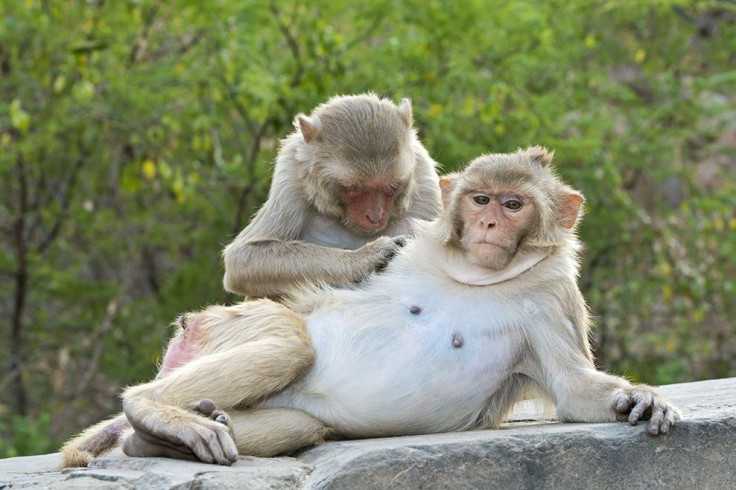Chinese Scientists Alter Monkey Brain By Inserting Human Gene, Trigger Ethics Debate

A study meant to understand the evolution and genetic mechanisms of human intelligence led Chinese scientists to create genetically-engineered monkeys carrying human brain genes.
“Here, we successfully generated 11 transgenic rhesus monkeys (8 first-generation and 3 second-generation) carrying human copies of MCPH1, an important gene for brain development and brain evolution,” the researchers wrote on their paper. “Brain image and tissue section analyses indicated an altered pattern of neural cell differentiation, resulting in a delayed neuronal maturation and neural fiber myelination of the transgenic monkeys, similar to the known evolutionary change of developmental delay (neoteny) in humans.”
The Chinese scientists reported that they have successfully implanted MCPH1, a gene for human brain development, to 11 rhesus monkeys.
Chinese #scientists have recently created a #transgenic #monkey whose #DNA has the #HumanGene https://t.co/S3RBEtDpN9
— Economic Times (@EconomicTimes) April 12, 2019
The monkeys were subjected to memory tests requiring them to remember colors and shapes on a screen and underwent MRI scans. Five transgenic monkeys endured the testing stage.
Research findings showed that there was a delay in the cognitive development among transgenic, genetically engineered monkeys, but it is similar to that of humans.
Chinese scientists have put human brain genes in monkeys https://t.co/EQ6xEXldLD
— Stephen Turner (@strnr) April 10, 2019
Transgenic rhesus monkeys carrying the human MCPH1 gene copies show human-like neoteny of brain development https://t.co/AUkFOTHbaQ pic.twitter.com/CsuuFnWMDv
Though the transgenic monkeys’ brains did not grow larger than that of wild monkeys, further analysis showed a similar delay in human brain development.
“The transgenic monkeys exhibited better short-term memory and shorter reaction time compared to the wild type controls in the delayed matching to sample task,” the researchers added.
They concluded that the first attempt to study the genetic basis of human brain evolution using genetically engineered monkeys values the use of non-human primates in understanding human unique traits.
What could possibly go wrong?
— C. Michael Gibson MD (@CMichaelGibson) April 11, 2019
Chinese scientists create transgenic macaque monkeys with extra copies of a human gene suspected of playing a role in shaping human intelligence.
The monkeys' brains took longer to develop & they have better memory.https://t.co/BjJs0U3TqK
The experiment has garnered attention from a medical and ethical standpoint, with some people comparing it to the “Planet of the Apes.”
Can we take bioethics seriously? Chinese scientists “tried to narrow the evolutionary gap, creating several transgenic macaque monkeys with extra copies of a human gene suspected of playing a role in shaping human intelligence” https://t.co/3yIEJhejwL
— Ankit Panda (@nktpnd) April 11, 2019
“Rhesus monkeys are far enough evolutionarily from humans that a few additions of genes will not create a 'Planet of the Apes' scenario,” Megan Dennis, a biochemist and geneticist at the University of California, said, referring to fears that the transgenic monkeys could be self-aware.
“Rhesus macaques are one of the best animal models for studying brain development and evolution, and have the best translational value for improving human health,” Anthony Chan, a researcher at Emory University’s Yerkes National Primate Research Center, said.
However, he added that scientists must be extra careful whenever they add human genes to animals and design an experiment that keeps the animals' suffering to a minimum.
The research on transgenic monkeys was conducted by researchers at the Kunming Institute of Zoology and the Chinese Academy of Sciences, in collaboration with US researchers at the University of North Carolina.
The study was published last month in the Beijing-based journal National Science Review.
© Copyright IBTimes 2024. All rights reserved.





















